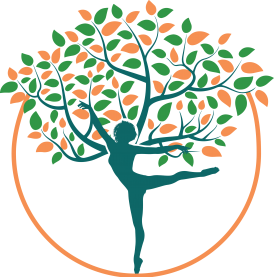THERAPEUTIC- 'Relating to the healing of disease, or serving to preserve health'.
RELAXATION - 'The state of being free from anxiety and tension'.

Therapeutic relaxation is the state of relaxation that creates positive healing change within the mind and body
In today's fast paced and stress-filled world, finding moments of peace and stillness through relaxation is essential for maintaining our physical and mental wellbeing, and building, strengthening and sustaining our personal resilience.
There are many people who wear the stress in their lives as a badge of honour. "My life is so stressful", "I thrive on stress" or, "I am always so stressed out." Believe me, this is not a good state to be in. Stress is indeed an everyday part of our lives, and in short doses is a necessary evil. Stress is a primitive bodily response designed to get ourselves out of adverse situations, but is not designed for prolonged or chronic exposure.
If we are being chased by a lion, then great, bring on the stress response. The sympathetic (or stress response) branch of our nervous system responds by pumping us full of adrenaline and Cortisol to get us out of danger. Our energy is pumped up and we can run faster, breathe faster, and work instinctively to get ourselves out of danger. Run, fight or hide. that is what we need to do, in that moment.
After the danger has passed, we can rest and recover. Our parasympathetic (or relaxation response) nervous sytem kicks in to slow everything down, reduce the levels of Adrenaline and Cortisol, slow down our heart rate, reduce blood pressure and our energy draws in, and we can recover into a state of homeostasis or balance.
The perfect response to an acute emergency situation but, in today's world where chronic stress is at epidemic levels (and most of the time, we are not actually in any kind of danger), the ever present over release of this cocktail of hormones and chemicals is creating a plethora of health issues. Our bodies are are not designed for prolonged exposure to Adrenaline and Cortisol. The ramped up blood pressure and the heightened energy cannot be sustained long term without having a severe impact on our health.
Over 75% of GP appointments are related to chronic stress, and pretty much every system in the body is affected. Cardiovascular disease, Diabetes, migraines and headaches, inflammatory conditions, anxiety, depression, digestive disorders, immune system disorders, premature ageing, weight gain, cognitive disorders, sleep disorders, hormonal disturbances, even periodontal disease (severe gum disease) and premature tooth loss can be the result of chronic stress.
So, we need to find an answer to the myriad of causes of chronic stress in modern life. Relationships, money, kids, work, tech, family dynamics, travel, divorce, moving home, illness, you name it, stress will be attached to it in some way, so it is not surprising that it is an epidemic which shows no sign of going away anytime soon.
What do we do to combat this epidemic of chronic stress then?
First of all, we need to be aware of what is causing the stress in our lives, and be honest about the impact it is having on our health, because with some small changes in lifestyle, it is possible to manage the stress and, in turn, improve our health.

SO.. PERMISSION TO RELAX ~ RELAXATION IS GOOD FOR YOUR HEALTH
Therapeutic relaxation is a key component of this stress management plan and it can have far reaching beneficial effects in improving our health and wellbeing. Therapeutic relaxation is the type of relaxation where the magic happens - where positive change occurs to create balance and harmony within us, between the mind and all body systems. By taking responsibility for our health and understanding what is happening within us, we can make it easier to create the changes that are needed to improve our lives.
Benefits of therapeutic relaxation include:
- Reduction in stress chemicals
- Reducing anxiety and depression
- Improving cognitive functions
- Reduction of blood pressure and slowing of heart rate
- Maintenance of blood sugar levels
- Reducing muscle tension
- Improving immune system function
- Improving digestive system function
- Reducing inflammatory processes
- Boosting motivation, focus and productivity
- Gaining mental clarity and improving decision making
- Lowering of breathing rate
- Pain management
- Finding a space of peace, stillness and calm.
And more...
First and foremost, you need to find the relaxation activities that you will enjoy so that you will be motivated to engage in them regularly. This is not a quick fix. These activities need to become a part of your life, and they need become habits that you will incorporate into your everyday life so that you will become immersed in the wellbeing effects, and you will be more likely to keep them up.

There are a number of practices that are designed to calm the mind and soothe the body including:
- BREATHWORK - there are many types of breathwork activities that can be really helpful. I like to use two in particular -
- HEART FOCUSED BREATHING - Close your eyes, slow your breathing, place your hand on your chest or your heart space, and visualise your breathing coming in and out of your heart. Imagine the breath has a colour so that you can see the breath coming in and out of the heart. After a few minutes of beautiful heart breathing, breathe in, and on the out breath, send love, kindness and appreciation out to your friends, family, the world.. whoever you want to send it to, and continue this for 5, 10, 15 or 20 minutes.
- DEEP BREATHING - or diaphragmatic breathing. Engaging the diaphragm as you breathe in and relaxing as you breathe out. These exercises have been shown scientifically to activate the body's relaxation response via the vagus nerve and parasympathetic nervous system.
- WALK IN NATURE - Both walking and the practice of being surrounded by nature, contribute to your wellbeing and relaxation. Being surrounded by trees and bird noise is like being immersed in your very own forest bathing session.
- VISUALISATION and GUIDED IMAGERY - Of tranquil scenes, or being by the sea, or in a favourite relaxing space. Being guided to generate mental images that invoke sights, sounds, smalls and places that are calming and relaxing.
- YOGA, TAI CHI and QIGONG - are all really effective ways of combating chronic stress and contributing to the practice of therapeutic relaxation. They are activities that create postures and movements that link the mind, body, focus and meditation, and provide a space of letting go, and connection to within.
- PROGRESSIVE MUSCLE RELAXATION - A systematic process of relaxing the muscles by tensing and releasing them in turn. Working from one muscle group to the next, this type of exercise is really effective for those struggling with anxiety and stress related tension.
- CHANTING AND MANTRAS - Using your voice to release stress is a really effective method of relaxation that facilitates peace of mind. The repetition of mantras is a form of meditation that releases the mind and increases self-awareness.
- FOODS for RELAXATION - Eating or drinking certain foods can have profound anti-anxiety effects and promote a relaxing effect on the body. Chamomile tea, green tea, turmeric, salmon, dark chocolate and foods high in magnesium, are all foods that have relaxation effects on the brain and body.
- SLEEP THERAPY - Promoting good sleep hygiene is essential in managing stress and promoting relaxation. I am sure we all know what it feels like to be functioning at work on only a few hours sleep. It is an awful feeling and we cannot be productive in this state. Limiting the consumption of caffeine drinks, establishing a relaxing night routine, avoiding late night meals, reducing alcohol consumption, withdrawing tech at least an hour before going to bed, minimising blue light tech, having a warm, relaxing bath, candles, relaxing music and scents such as lavender all help to promote relaxation.
- MINDFULNESS - The practice of connecting and focusing on the present moment without judgement. This focus brings your attention from outside of you to within, calming the mind and fostering self-awareness. moving your attention away from your external stresses to peace within.
- MEDITATION - is a really useful method of promoting an inner state of relaxation. It requires you to be able to sit and train the mind to be stronger. It can be done in a group or on your own, guided or focused by yourself. Meditation brings the focus to within you by focusing on the breath, a mantra or a word, such as Calm, Relax or Serenity. You can start with as little as 2-5 minutes per day and increase to several hours. It takes practice but is worth every second.
- MUSIC - Listening in a quiet space to relaxing music can have a profound effect on your relaxation response. Relaxing, ambient music may help you sleep and listening to binaural beats can have a deep meditative effect on your relaxation.
- BIOFEEDBACK - A way of monitoring your body's response to stress by attaching sensors to your finger so that the therapist can see in real time how your heart or breathing rate is being affected. A relaxation exercise can then be employed to bring the body into a relaxed state. Often a breathing exercise or music can be played to offer a space of relaxation and contemplation.
- DANCING - Movement such as dancing is enjoyable and can be deeply relaxing. Chakra dancing, meditative movement and movement for stress release can all help create a space of relaxation.
- RELAXING WITH FRIENDS - Just the pure action of being with friends, talking, laughing, eating and communicating can be a rewarding form of stress relief. having someone to talk over problems, sharing and helping others cannot be underestimated.
- REFLEXOLOGY, MASSAGE and REIKI - are all healing therapies that work to balance mind and body. Massage will physically help to release muscle tension, Reflexology promotes a therapeutic relaxation by bringing balance to the whole body through the feet, hands and face, and Reiki works by channelling of universal energy. It works on a profound spiritual level and there are many scientific studies to show that each therapy has a beneficial level on relaxation.

Knowing what we do know about the benefits of relaxation on the mind, body and spirit, we can see that there are a huge number of ways of bringing about the therapeutic effects that can have an effect on your health and your life..
Relaxation is really important to each and every one of us. It is not a luxury.. It is potentially a life saving experience. There is a huge amount of choice of practices so there can be something for everyone.
